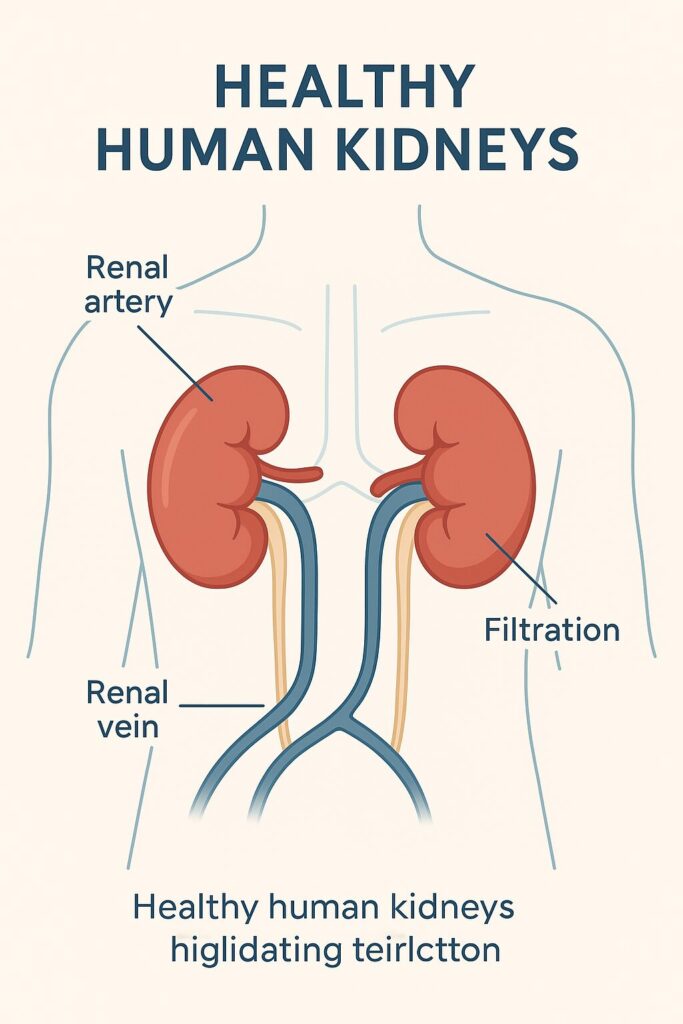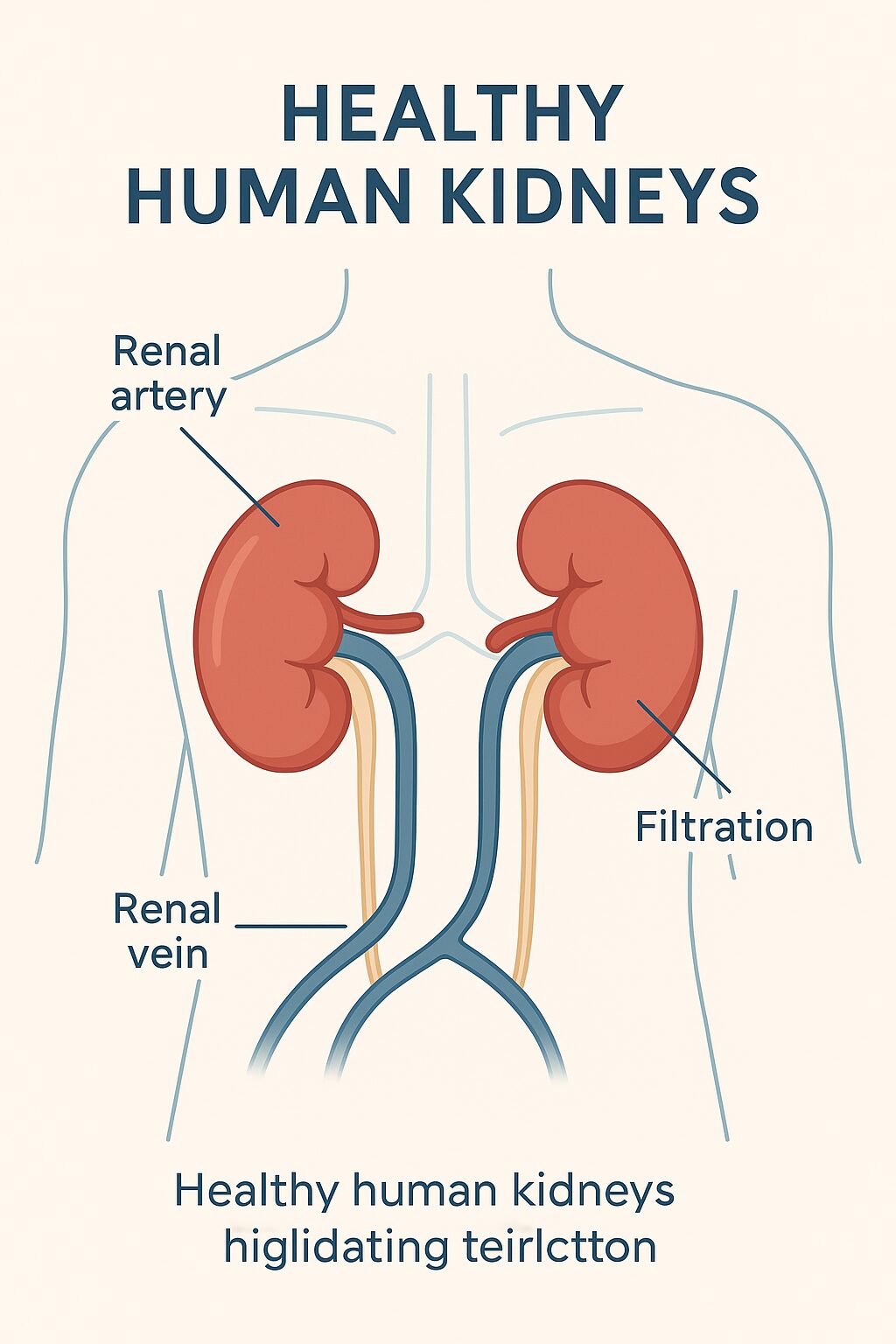The kidneys are two bean-shaped organs located on either side of the spine. Despite their small size, they perform essential roles that keep the body in balance. Each day, they filter large volumes of blood, remove waste, regulate electrolytes, and help control blood pressure. Because kidney health is linked to heart function, bone strength, and even energy levels, protecting them is vital for long-term wellness. This article explains their functions and how they may affect overall health.

1. Filtration and Waste Removal
Kidneys filter waste products such as urea, creatinine, and uric acid. These substances are eliminated through urine, preventing toxic buildup. When kidneys fail to function properly, fatigue, nausea, and swelling may develop due to waste accumulation.
2. Fluid and Electrolyte Balance
By regulating sodium, potassium, calcium, and phosphorus, kidneys maintain fluid and electrolyte balance. Disturbances in these minerals may cause muscle cramps, irregular heartbeat, or blood pressure changes.
3. Blood Pressure Regulation
The renin-angiotensin-aldosterone system controlled by the kidneys helps regulate blood pressure. If kidney function declines, blood pressure may rise, increasing the risk of cardiovascular complications.
4. Hormone Production and Red Blood Cells
Kidneys secrete erythropoietin, a hormone that stimulates red blood cell production in the bone marrow. Poor kidney function could lead to anemia, causing weakness and reduced concentration. They also activate vitamin D, which supports bone metabolism.
5. Bone Health and Vitamin D Activation
By converting vitamin D into its active form, kidneys help the body absorb calcium and phosphorus. Impaired kidney function may lead to bone weakness and higher risk of fractures.
6. Connection to Other Organs
Kidney health is closely related to heart and liver function. People with heart failure often develop kidney issues, while poor kidney function may worsen cardiovascular conditions. This interdependence highlights the kidneys’ central role in systemic health.
7. Common Kidney Disorders
Chronic kidney disease (CKD), kidney failure, and glomerulonephritis are common disorders. Early symptoms may include swelling, fatigue, or loss of appetite, but progression can require dialysis or transplantation.
8. Lifestyle for Kidney Health
Healthy kidneys may be supported through lifestyle habits such as reducing salt intake, staying hydrated, limiting processed foods, and avoiding excessive alcohol and smoking. Regular exercise and blood pressure control may also help preserve kidney function.
🌿
The kidneys are vital organs that filter waste, balance electrolytes, regulate blood pressure, and support bone and blood health. Protecting kidney function through diet, hydration, and regular checkups may help maintain long-term wellness. Small lifestyle choices could make a significant difference for overall health.
References and Further Reading
National Kidney Foundation – Kidney Function and Care
World Health Organization (WHO) – Kidney Health Overview
National Institutes of Health (NIH) – Kidney Function Basics
※ This article is for informational purposes only and does not replace professional medical advice. Individual needs may vary, and consulting a healthcare provider is recommended for personalized guidance.
